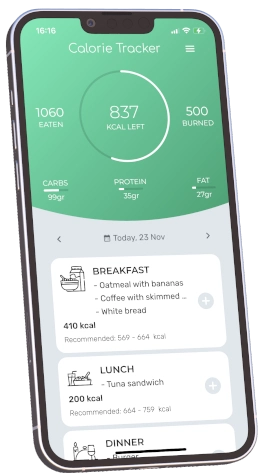What Does a Stress Belly Look Like
Stress can be a challenging and overwhelming experience, and it’s natural to wonder how it may affect your health and wellbeing.
The stress belly looks the same as one with excessive fat.
What is a stress belly?
A stress belly is essentially the result of how our bodies react to stress.
When we’re stressed, our bodies release a hormone called cortisol.
Cortisol can affect where our bodies store fat, and for some people, that means more fat ends up around the abdominal area.
So, when you’re feeling stressed out for an extended period, you might notice your belly looking a little rounder or larger than usual.
Here’s a typical example of what a stressed belly looks like:

We have an extensive guide on how to lose belly fat, where you can find what exactly is belly fat and how to get rid of it.
In order to know what does a stress belly look like you need to understand how it contributes to excessive weight and how it is formed while under stress, which you can find out further as well as how to get rid of it.
Does stress contribute to belly weight?

While stress alone doesn’t cause weight gain, it can lead to habits and changes in the body that may contribute to weight gain.
For instance, when we’re under stress, we may seek comfort in high-calorie and sugary foods, which can lead to overeating and an increase in calorie intake.
Additionally, stress can also affect hormone levels, such as cortisol, leading to an increase in appetite and potentially causing weight gain.
Stress also make it harder to maintain an active lifestyle and get enough quality sleep, which can also contribute to weight gain.
Everyone’s body responds differently to stress, and other factors such as genetics and diet play a significant role in regulating weight.
Can cortisol cause belly fat?
We’re diving deep into how cortisol works in the body and its connection to that stubborn belly fat.
What is Cortisol?
First off, cortisol is a hormone, often called the stress hormone, produced in the adrenal glands.
It’s not just there to make our lives harder; cortisol plays key roles in various body functions like regulating metabolism, reducing inflammation, and controlling the sleep-wake cycle.
Stage 1: The Alarm Reaction
Imagine you’re walking and suddenly see a snake (yikes!). Your body jumps into action, and that’s where cortisol enters the scene.
It increases glucose in the bloodstream, enhances your brain’s use of glucose, and increases the availability of substances that repair tissues.
Short-term, this is fantastic – it’s the fight or flight response. But if this state persists, things start to change.
Stage 2: Resistance Phase
If the stressor doesn’t go away (like constant work pressure or personal issues), your body enters a resistance phase.
Here, cortisol levels remain high to keep your body on high alert.
This prolonged exposure starts to have different effects – one being the way your body stores fat.
Stage 3: Fat Storage
This is where the belly fat comes into play. High and persistent levels of cortisol can lead to increased appetite.
Why?
Your body thinks it used up a bunch of energy (thanks to that fight or flight response) and now it needs to replenish.
This can lead to overeating, and guess where your body likes to store excess energy? Yep, the abdomen.
Stage 4: Metabolic Changes
As if increased appetite wasn’t enough, cortisol can also slow down your metabolism.
This means even if you’re not eating more, you might still gain weight.
It’s like your body is holding onto fat stores for dear life because it thinks tough times are ahead.
The Vicious Cycle
The real kicker is that abdominal fat itself produces hormones and chemicals, including more cortisol.
So, more belly fat can lead to higher cortisol levels, which leads to… you guessed it, more belly fat. It’s a vicious cycle.
Breaking the Cycle
How do you break this cycle? It’s about managing stress and making lifestyle changes.
Regular exercise, a balanced diet, mindfulness practices, and adequate sleep can all help keep cortisol levels in check.
It’s not just about losing belly fat; it’s about overall health.
So there you have it.
While cortisol is essential for our survival, its prolonged elevation due to chronic stress can lead to increased belly fat.
How do you know if you have a stress belly?
Here are a few signs that you may have a stress belly:
- Increased abdominal fat: People who suffer from stress belly frequently have more fat around their waist than around their hips and thighs.
- Large waist size: A waist circumference larger than 40 inches in males and 35 inches in women might suggest a stress belly.
- Poor eating habits: Chronic stress can disturb eating patterns and lead to overeating, which can lead to weight gain and a stress belly.
- Cortisol levels that are increased for a lengthy period of time might promote an increase in belly fat accumulation.
Can stress belly fat go away?
Stress belly fat can go away with lifestyle changes and stress management techniques.

Here are a few steps you can take to reduce stress belly fat:
- Avoid stress: Practice stress-management techniques such as meditation, deep breathing, and yoga to reduce stress levels and cortisol levels.
- Exercise regularly: Regular physical activity can help reduce stress and improve insulin sensitivity, which can help reduce abdominal fat. Aim for at least 30 minutes of moderate-intensity exercise most days of the week.
- Try to eat healthier: A diet high in fiber, protein, and healthy fats, and low in added sugars and unhealthy fats, can help reduce stress belly fat.
- Put sleep in the limelight: Poor sleep quality and duration can increase cortisol levels and contribute to stress belly fat. Aim for at least 7 hours of sleep per night. Don’t do anything intensive a couple hours before bed, be it brain work or exercise.
- Set limits for alcohol: Alcohol can increase cortisol levels and contribute to stress belly fat. Limit alcohol consumption to moderate levels or better cut it off completely. It is proven that alcohol, even in small amounts, leads to many health issues.

